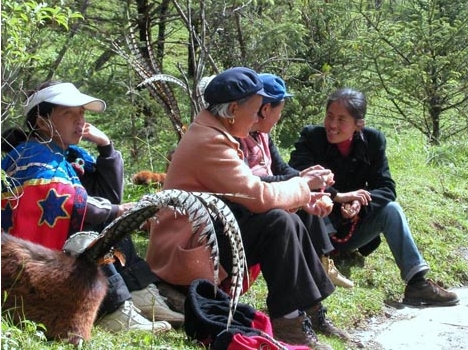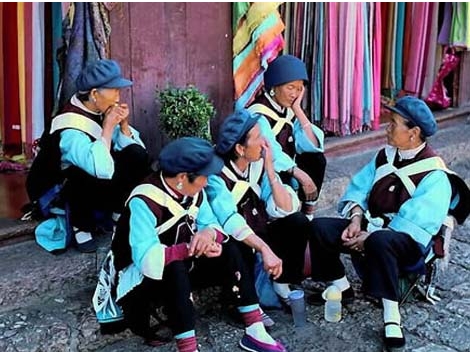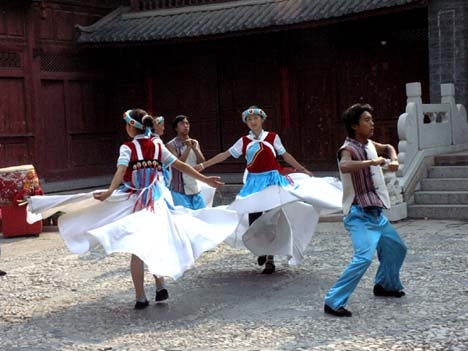


Naxi, an ethnic group with a history of about 1,700 years in China, is a branch of ancient China's Qiang group and mainly dwells in Naxi Autonomous County, Yunnan Province. "Naxi" became a unified name after the foundation of the People's Republic of China as different Naxi areas had their own names, such as Na, Naru, Nari.
The local people mainly engage in agricultural production, such as rice, corn, potatoes, wheat, beans, cotton, and flax. They are fond of drinking wine and strong tea and eating acidic, peppery and sweet food. They are also good at making many kinds of traditional tasty food with meat.
Dongba, Naxi's own written language, was formed in the seventh century and is the only hieroglyph in use now in the world. The treasured book Dongba Classics, written in Dongba characters, makes it possible for experts to research the history of Naxi's development.
There are many traditions, as well as some taboos, in Naxi people's daily life.
They are very hospitable. For example, a hunter heading home usually presents a passerby with a hunted animal. Also, a host usually treats a guest to six or eight dishes. Naxi people are as good as their word and are concerned with personal loyalty, so you should be frank when communicating with them. In addition, they are hardworking and frugal.
On the occasions of meeting visitors and having dinner, everyone should be seated upright, and unpleasant loud noise and vulgarities are prohibited. Also, one should not step on the crosspieces of the dinner table. Sitting with one leg over the other is forbidden when the older people are present. A guest should accept food with both hands from the host and say thanks.
At dinner, it is forbidden to clash bowls, turn over dishes, or eat dishes constantly. The host should help the guest with the dishes. Chicken heads are only for the elders and children shouldn't eat chicken's paws. The guest is supposed to tell the host how much rice he wants and no rice should be left in the bowl.
If two persons share the same bench, one must be careful of the other when he or she stands up, to avoid causing the other to fall off the bench. If one has finished his dinner, he is supposed to sit with others at the table for a while. And he should say: "please take your time" if he intends to leave.





